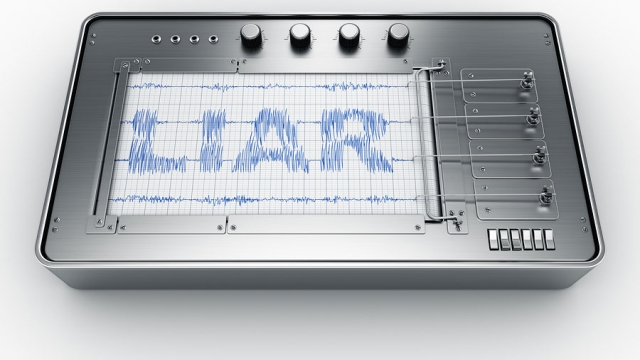
In a world where the line between truth and deception can often appear blurry, lie detector tests are one tool that aims to reveal what lies beneath the surface. The idea of a machine being able to detect whether someone is telling the truth has captured the imagination of many, sparking curiosity and skepticism alike. These tests, also known as polygraphs, have found their way into various realms of society, from criminal investigations to employment screening, raising questions about their reliability and ethical implications. What truly lies at the heart of lie detector tests, and how do they work to unravel the tangled web of deception? Let’s peel back the layers and delve into the intriguing world of polygraphs.
How Lie Detector Tests Work
Lie detector tests, also known as polygraphs, operate based on the physiological responses of individuals. These tests measure various bodily indicators such as heart rate, blood pressure, and respiration to detect changes associated with stress and deception.
During a lie detector test, the individual is typically asked a series of questions to establish a baseline of physiological responses. Subsequent questions are designed to elicit specific reactions if the individual is being deceptive. The polygraph machine records and analyzes these responses to determine the likelihood of deception.
The interpretation of lie detector test results involves evaluating the patterns and deviations in physiological responses throughout the questioning process. While not foolproof, lie detector tests are used in various settings, including law enforcement and security screenings, to aid in investigations.
Accuracy of Lie Detector Tests
Lie detector tests claim to be accurate in detecting deception through physiological responses such as heart rate and sweating levels. While proponents argue that these tests can be a reliable indicator of truthfulness, critics highlight the limitations and potential for error. In reality, the accuracy of lie detector tests is a subject of ongoing debate within the scientific community.
One key factor affecting the accuracy of lie detector tests is the variability in individual physiological responses. People may have different baseline levels of heart rate or sweat production, making it challenging to establish a universal standard for deception detection. This variability can lead to false positives or false negatives, reducing the overall reliability of the test results.
Furthermore, the context in which lie detector tests are conducted can also impact their accuracy. Factors such as the skill of the examiner, the wording of the questions, and the environment in which the test takes place can all influence the outcomes. Without consistent standards and procedures, the accuracy of lie detector tests may be further compromised, raising questions about their effectiveness in uncovering the truth.
Ethical Concerns
Lie detector tests raise significant ethical concerns as they infringe upon an individual’s right to privacy. The invasive nature of these tests, which often involve probing personal information, can lead to feelings of discomfort and violation of personal boundaries.
Furthermore, the accuracy of lie detector tests is not foolproof, leading to the potential for false outcomes and unjust consequences. This raises ethical questions about the validity and fairness of using such tests as a basis for making important decisions, such as in legal proceedings or employment screenings.
Another ethical consideration is the use of lie detector tests as a means of coercion or manipulation. When individuals are pressured or compelled to undergo these tests against their will, it can violate their autonomy and lead to further distrust in the system that enforces their use.
